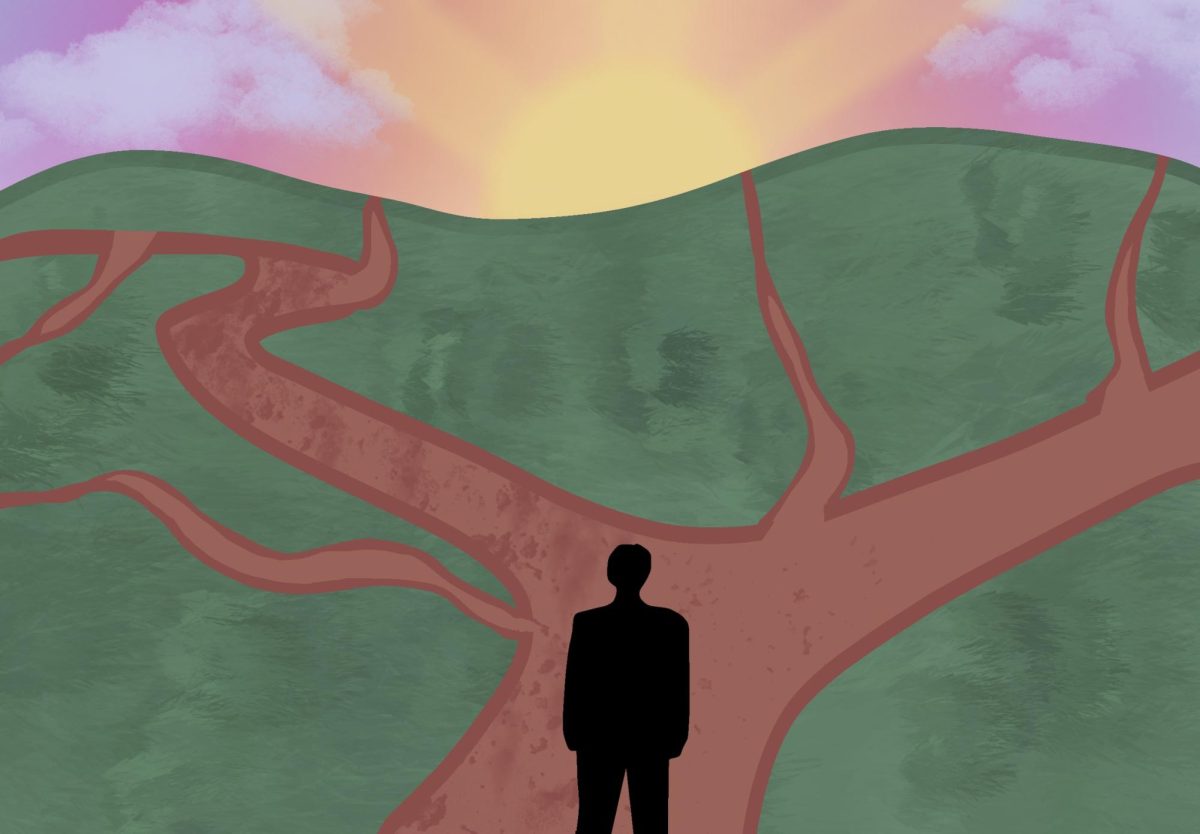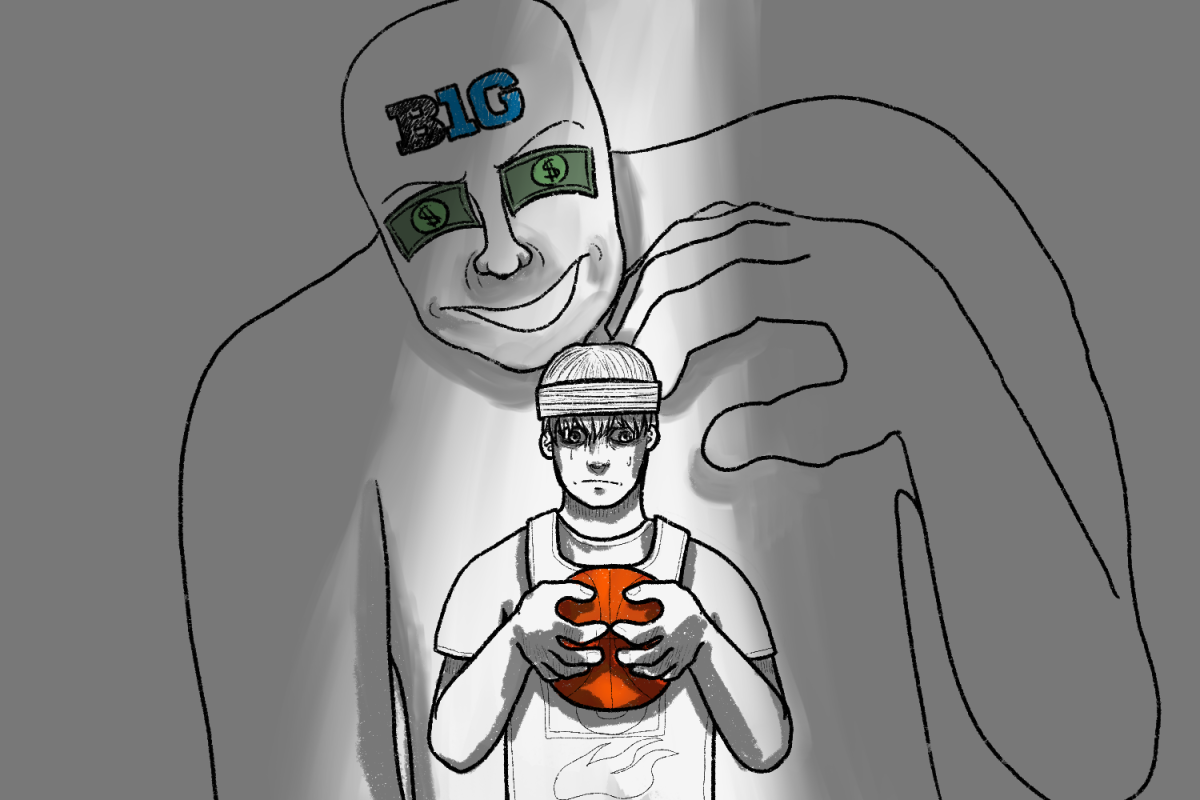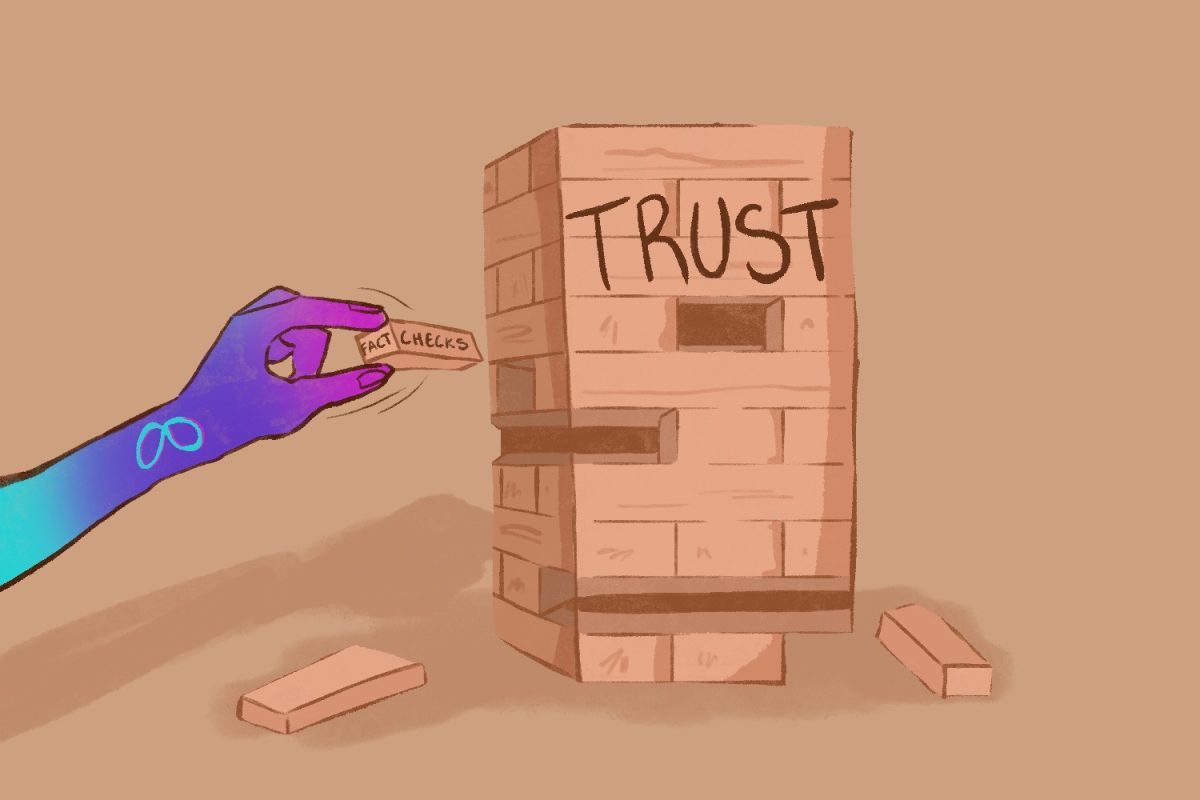There will always be a set of guidelines we are presupposed to follow, whether from parents, peers, or society. Don’t wear that, don’t flaunt wealth, don’t smoke, and smile when you talk, to name a few.
As due dates for college applications are encroaching, and early decision results will be looming soon, a pressing question for many students is what to do with the rest of their lives.
The question doesn’t only pertain to seniors; the exciting yet overwhelming idea of the rest of your life chases students throughout high school as family, peers, and media push a particular traditional life track down our throats.
The path is to graduate high school, attend college, get a job, advance in the workforce, have three weeks of vacation per year, and retire. Spanning around 47 years, this is the path over 50% of Americans ages 25-64 have taken, and over 60% of Americans are projected to take by 2025.
There is little room for individuality and less room for enjoyment as a singular mainstream lifestyle diminishes other potential futures–ones that some may enjoy more.
However, this immediate high-school-college-work pipeline isn’t taken without good reason. With an estimated $34,000 difference in yearly earnings between someone with a high school diploma and someone with a bachelor’s degree in California, higher education almost seems necessary to survive.
Especially where we live, in the fast-paced, fast-growing environments of Silicon Valley and San Francisco, jobs and assets are the main topics of adult conversation. At the same time, dreams of a different life take the backseat.
Over 63% of California high school students enroll in a college or university. As per supply and demand, California is home to the most extensive public university system, with 33 UC and CSU campuses and over 750 higher education institutions spanning the state, including universities, colleges, trade schools, and more.
This structure of early adult life is hardened by generations of people who see the benefits and may not have gotten the same opportunities, by peers who are set on following the traditional path, and by the stigma around unconventional post-high school plans.
The notion of forgoing higher education to become a homemaker, entrepreneur, or influencer is taboo and almost immediately shot down. “That’s not a real job!” and “How will you make a living?” are too often responses to any non-traditional life path after high school.
Don’t discredit dreams in the face of reality. We’ve all heard the expression, “Money can’t buy happiness.” This phrase is not entirely accurate; happiness comes in many different forms. However, there is a slightly different phrase to derive from it.
Money can’t buy enjoyment.
If your ideal life is as a stay-at-home parent, yet suddenly you’ve been pushed into a mountain of debt from a college degree you didn’t want and need to find a well-paying job to finance it, you’ll be tapping a pen against the desk in 15 years wishing your life turned out different.
Post-grad plans are not one-size-fits-all, and as impressionable young people, we can be squeezed into a box we can’t always get out of; mounting tuition prices and interest rates create an immediate need for high paying jobs straight out of college to stay out of the mercy of debt collectors.
For many, college is the exact path they want to take. They want education and a job; there is nothing wrong with that.
However, while it is often seen as a significant accomplishment in life, if you take it at face value, college is just more schooling that will open some additional doors but ultimately will not dictate your future. Take a gap year, go to college, go to the military, or don’t go to anything; you have your whole life ahead of you.
So when you write that college application or are debating between life paths, consider what you want your future to look like. Disregard what your parents want, what your friends are doing, and what you think you should be doing for a deeper look into who you are and what you want out of your future.
There is a whole world of options; do what excites you to live your life.
*This editorial reflects the views of the Scot Scoop Editorial Board and was written by Jackson Sneeringer.
The Editorial Staff staff voted 9 in agreement, 3 somewhat in agreement, and 4 refrained from voting.













